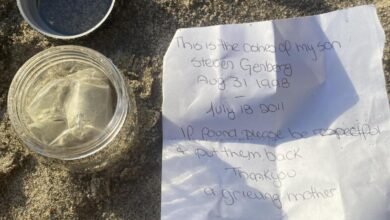When it comes to metal detecting, the story is more important than the treasure found in Wisconsin
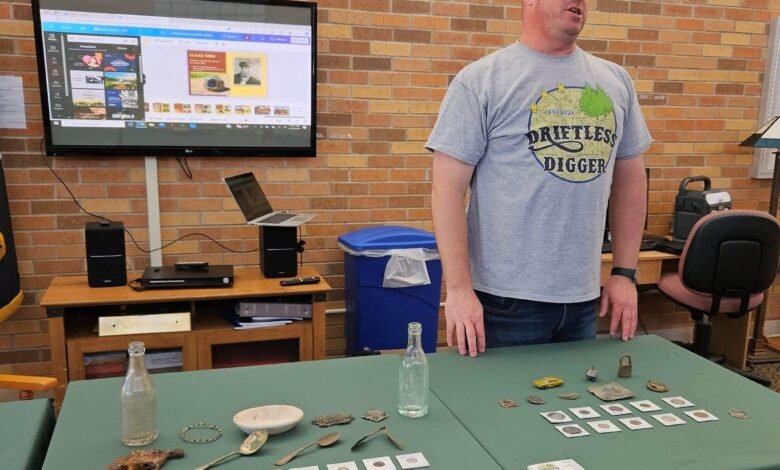
Rob Rizzo developed a passion for history before falling in love with metal detecting.
His grandmother Marie owned and operated an antique store called Richland Thrift Shop in suburban Pittsburgh. Rizzo and other grandchildren wandered freely among mysterious artifacts and treasures.
Then in 2018, a few years before his retirement, Rizzo’s children gave him a metal detector. They knew of his passion for history and thought about the perfect gift that would allow him to discover stories hidden beneath the earth.
Stay up to date with the latest news
Sign up for WPR’s email newsletter.
“Let me tell you: Once you find the first cool, interesting article, you’re hooked,” he said recently on WPR’s “The Morning Show.” “I’ve enjoyed it ever since.”
Jim Winter got his first metal detector at a much younger age than Rizzo. Five years ago, he was cleaning out his garage in Dubuque, Iowa, and found his old metal detector, the same one he used to beg his parents for as a teenager.
The cables connecting the battery to the detector had become frayed over the years, so this detector was broken. But Winter said when he stumbled across his old detector, he had an epiphany: As a child, he loved searching for metals. Maybe he should take up the hobby again?
Winter purchased his first professional metal detector in 2019. He now lives in Beloit and calls himself “Driftless Digger.” He travels throughout Wisconsin providing insight and advice on metal detecting.
Rizzo, known as the “History Digger,” also travels the state posting metal detecting videos online. Rizzo lives in Oconomowoc and works with homeowners who want to have their old properties searched for historic or lost items.
On “The Morning Show,” the two metal detectorists explained that they are more concerned with preserving history than searching for treasure.
“Metal detecting helps us connect with things from the past that we can bring back to the present and share and preserve – telling the stories about these historic items for future generations,” Rizzo said.
“We research our finds because we want to tell the story of what that find is,” Winter said.
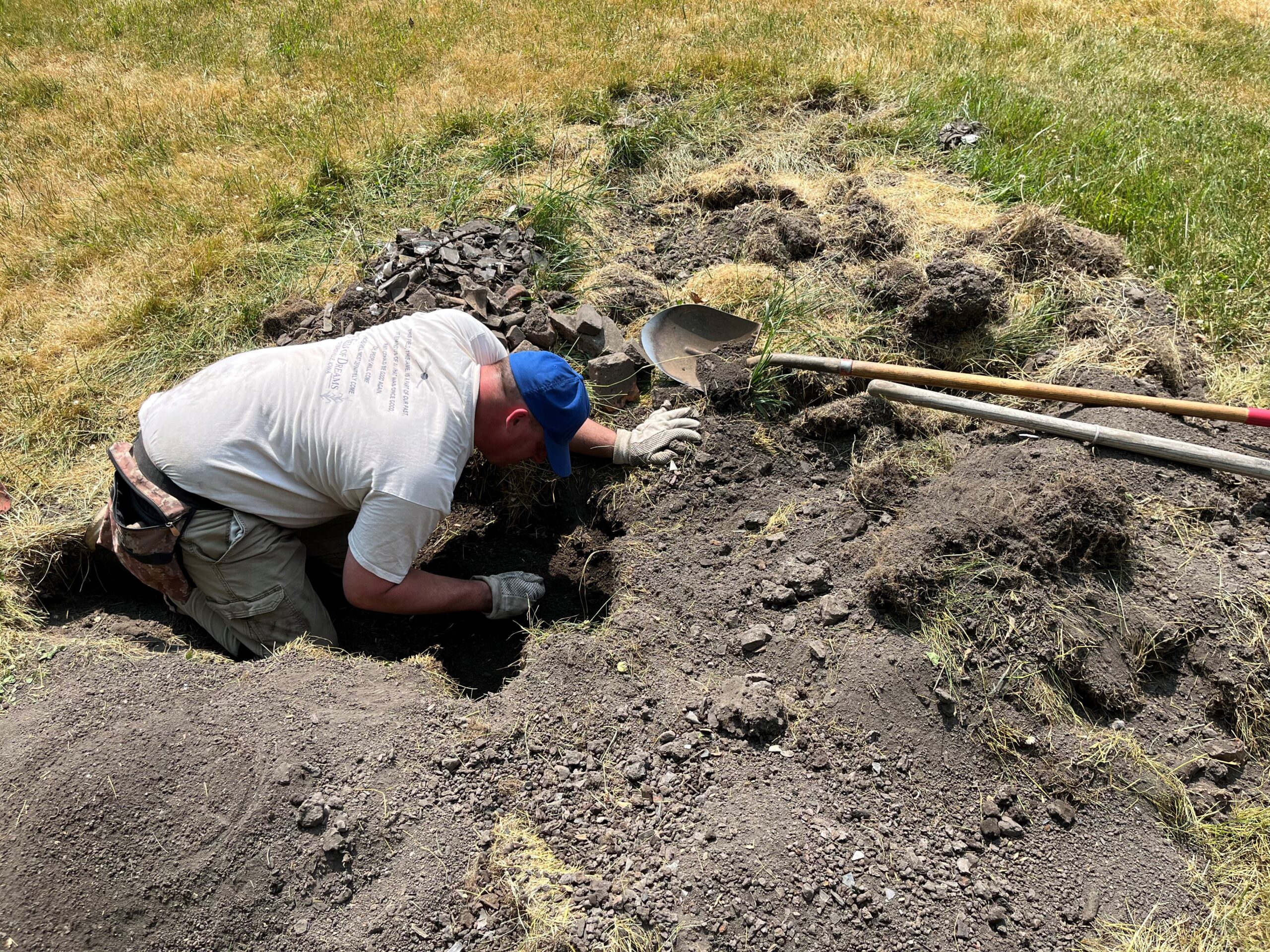
More than a treasure
Winter no longer thinks he is a treasure hunter.
“I don’t like that term anymore. I call myself a history saver,” he said. “For me, being a treasure hunter means that I go somewhere, dig everything out of the ground and take it with me. I just didn’t like the way it felt or landed.”
One of Winter’s favorite finds early in his time as a metal detector was a church key can opener. He found it at his friend’s house, which used to be a one-room schoolhouse outside of Platteville. The can opener had a few holes in it like a key, Winter said. The screws for the headlights of earlier T-models and other cars fit into one of the holes.
“I enjoy the research as much as I enjoy finding the item,” he said. “You never know what to expect from the earth.”
Last year, Winter took his metal detector to an old church north of Platteville. About 3 inches beneath a tree root, he found a 10-karat gold class ring from Platteville High School’s class of 1973. Winter saw the initials MV on the ring. He said it became his job to return the ring to its owner.
He looked up the school yearbook at the local library. A class member matched the initials. But Winter said the man died in a car accident in 2006. Winter then contacted a newspaper editor to obtain the man’s full obituary, hoping to reach a family member.
Winter found the family’s address and showed up at their front door. After returning the ring, he learned that the deceased’s grandson was interested in metal detecting. Winter thought he could show his grandson a thing or two.
Last Christmas, Winter’s family bought a metal detector for their grandson.
“Hopefully one day it will help someone recover a class ring or something and give it back to a family so this hobby lives on that way,” Winter said.
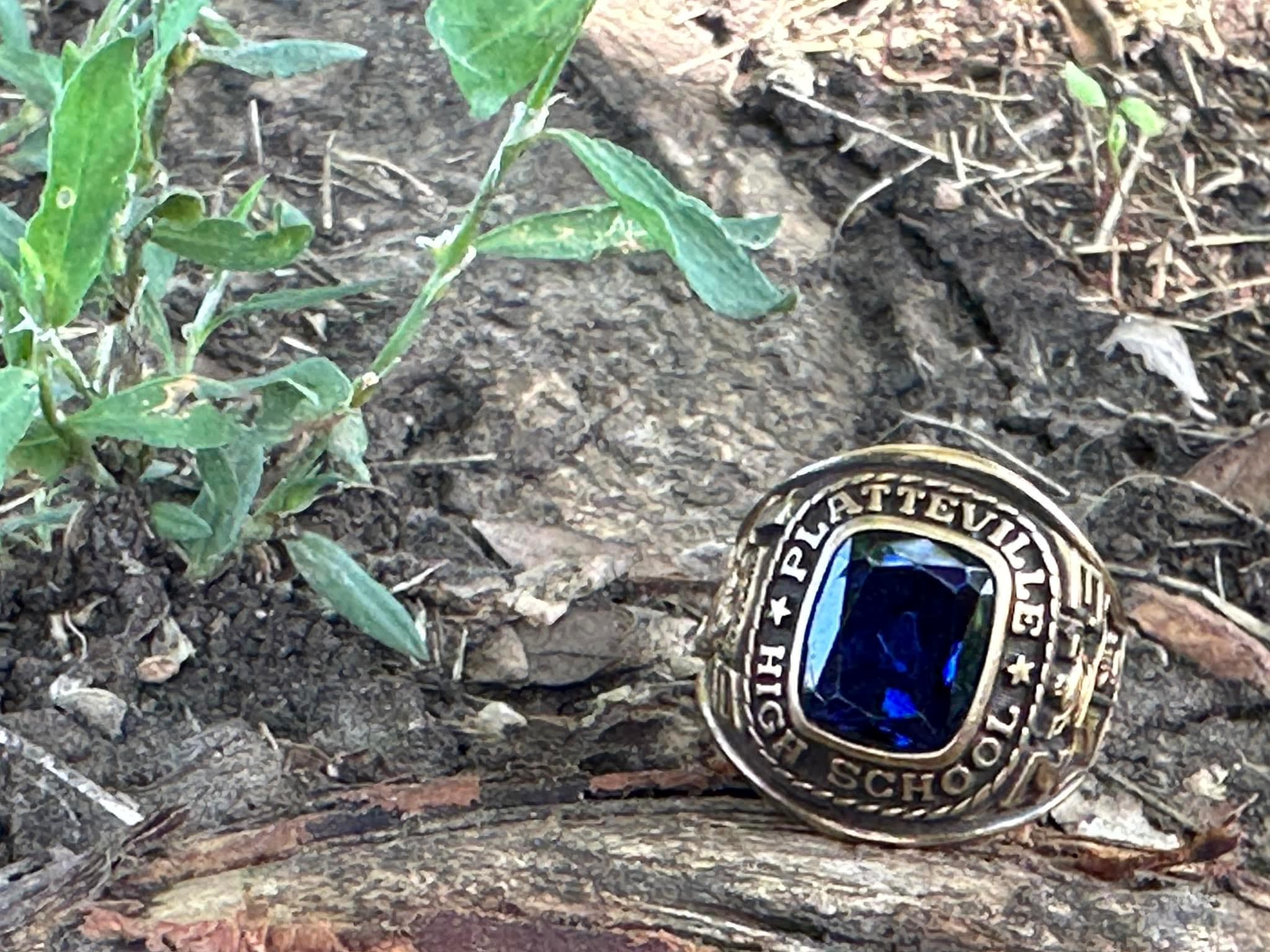
Thanks to Rizzo, another family could soon be reunited with an old class ring. In Chilton Township in eastern Wisconsin, he discovered a ring 4 to 5 inches below the surface. The ring bore the owner’s initials and the year of study, 1946. Rizzo used a yearbook to locate the ring’s owner.
Like Winter’s discovery, Rizzo learned that the ring’s owner had died. Still, Rizzo said he’s trying to get in touch with the owner’s family and surprise them with the ring.
“It will be a joy to give them back something that belonged to their mother or grandmother,” Rizzo said. “There’s so much more to it than just metal detecting.”
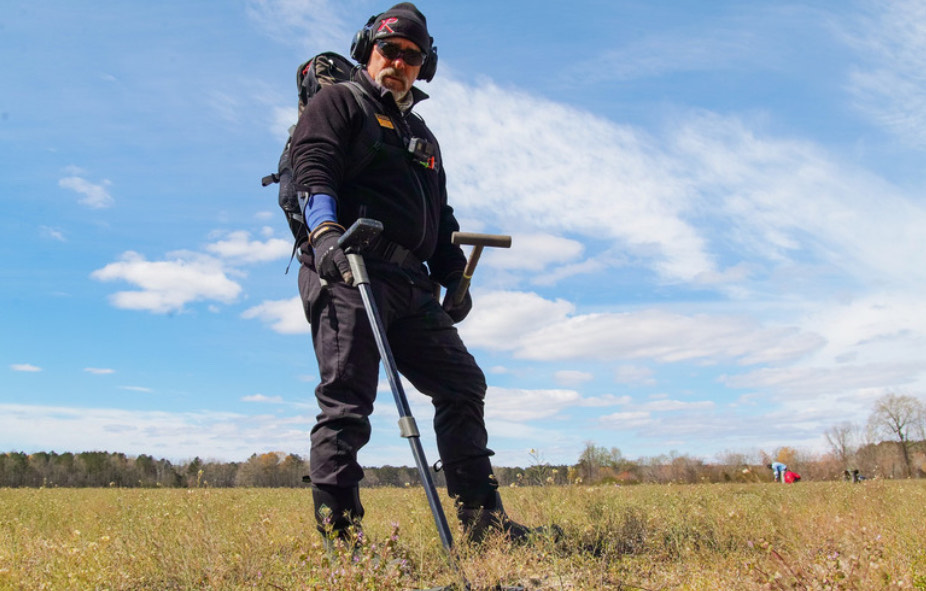
Advice for new detectorists
Rizzo and Winter offered several tips for beginning metal detecting enthusiasts.
Don’t go cheap: Winter said cheaper metal detectors — around $100 or $150 — can frustrate beginners because they make a single sound for each metal the user moves over. This feature could result in a lot of bottle caps and nails being found. Winter said if you spend $200 or $300, you could get a metal detector that distinguishes its tones and shows the depth of what’s in the ground.
Expect garbage: Pull tabs, bottle caps, aluminum foil and nails. Finding trash is part of the hobby, although various metal detectors can help you avoid finding trash. As Winter puts it, “You have to find the trash to find the treasure.”
To join a club: Participating in this activity with experienced individuals means new detectorists can learn about “metal detecting etiquette,” Rizzo said. Meeting with experienced metal detectorists could result in valuable advice. Good etiquette would be to ask permission to be in a room, fill the holes you dig, and take away any trash you find. Winter said he also gives the property owner the initial push to keep what they find.
Know the laws: Rules about where municipalities allow metal detecting vary from place to place. For example, Rizzo said Wisconsin bans metal detecting in state parks. However, Michigan does allow metal detecting in some state parks and beaches. Different rules also apply in city parks. Some require a permit.
Wisconsin Public Radio, © Copyright 2024, Board of Regents of the University of Wisconsin System and Wisconsin Educational Communications Board.


